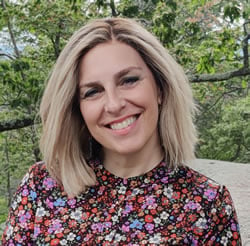
Several months ago, I was invited to be a part of a panel discussion on women's issues. The participants were a group of women activist and leaders who had come together to discuss, share and brainstorm on the issues facing us as religious Jewish women. The panelists each gave a presentation on how to respond to questions and critique about the role of women in traditional Judaism.
Following our presentations, a lively discussion ensued. Finally, several hours later, there remained a small group, resolute on continuing. The intimate environment now gave way to greater openness. "Tell me," one participant asked, "in all honesty, are you wholly satisfied with the answers you have presented? Do you ever have a remaining niggling doubt?"
This question comes often, in many shapes and sizes, but basically always asking: Do you feel completely satisfied with your understanding of your role and Judaism's position towards women?
To answer honestly, no, I do not feel satisfied. Yes, I have doubts. No, I am not completely comfortable with the answers I have so far arrived at, even the best and most eloquently voiced ones.
But is Judaism a religion of comfort? Is our goal as Torah-observant, G‑d-fearing individuals to suppress our doubts, to vanquish our questions and feel "satisfied" with our positions and understandings?
If you asked me if I was "satisfied" with my level of parenting, I would respond, no, I am not comfortable with how I parent, but constantly strive to be a better mother, to learn new and better ways to develop my children's innate positive qualities and overcome their negative ones. No, I am not satisfied with my marriage, but always seeking more meaningful ways of sharing and communicating. No, I am not satisfied with my children's educational systems and I am forever rallying the teachers and institutions to better their skills, improve their methods and broaden their horizons. No, I am not satisfied with my relationship with G‑d, or the role that spirituality plays in my life, but always yearn to make it more real.
In fact, in just about every area of my life that is significant, I do not have a "comfort level." So why should I feel a comfort level with my role as a Jewish woman?
It reminds me of a discussion I had with a friend several years ago. She called me on one very rainy Lag b'Omer morning, knowing that I had arranged a big event for our community for that special day—in an outdoor park.
Susan (cynically): "So Chana, what do you say now about your G‑d, ruining our opportunity to enjoy a Lag b'Omer event in the outdoors? How do you defend Him?"
Me: "I don't defend Him. He can better defend Himself."
Susan: "What do you mean? You are a religious woman! You need to defend G‑d and what He did this morning."
Me: "Susan, you are a lucky woman."
Susan: "What??"
Me: "Your greatest complaint against G‑d right now is that He made it rain on Lag b'Omer, you are a very lucky woman indeed! I, on the other hand, have far bigger and greater complaints against Him and how He chooses to run His world."
Susan (aghast): "Chana, how can you talk like that? I thought religious people have no complaints against G‑d. And certainly never ever any doubts!"
But contrary to my friend's impression, I believe that that is exactly what Judaism demands of us. Not that we become robots who have no emotions, personality or opinions. Not that we squelch our questions, thought processes, doubts or problems. That is not faith—it is sleeping through life! G‑d wants us to ask, to question, to research and then to ask some more. He wants us to involve our intellectual and emotional faculties in our religious service. Push your buttons, stretch your limits, expand your boundaries and find the answers that talk to you, personally. And once you discover your answers, begin searching again on a whole new level.
It is precisely because I believe that G‑d has such "broad shoulders," that I don't need to "defend" Him and I do not fear to unload my challenges and doubts on Him. Because I believe in His absolute greatness and His infinite wisdom, I don't fear that there aren't answers to my questions—even when I can not find these answers.
So, it is complacency, not questions, that pose a threat to Judaism. If we don't question, how are we expected to grow and develop as intelligent, emotional and spiritual beings?
Moreover, it is these questions that propel us out of the lethargy of our comfort zones – lay people, scholars and great rabbis alike – to dig deeper and discover the greater truths hidden within our eternal Torah.
Because Torah is not man-made, it contains the greatest infinite secrets for each of us to uncover, to live more connected and meaningful lives. Torah is dynamic and it has embedded within it the unique responses and answers to the pressing questions and conflicts of each generation. The more we push our limits, the more we will cause our society to evolve into what is truly G‑d's will for our world, at any given era.
Since Torah is G‑d's divine blueprint for creation, it teaches us how to elevate our world. Since Torah is eternal, it speaks to a whole variety of people on all different levels with all different value systems in all eras and time zones. The common message throughout is: lift yourself from where you currently stand, just a little higher. Torah cannot and does not demand from us that which is beyond our reach, but it does expect us to push our reach, to stand a little taller, towards its ultimate goal of a perfected, rectified world.
For example, throughout history, even in those eras when in the world at large women were considered not more than mere chattel, in Torah societies, there were mandated laws, a ketubah, or contract, listing a husband's obligations and responsibilities towards his wife's happiness and fulfillment and financial stability on the event of divorce or widowhood.
Or the Torah's view on slavery, something that the modern mind, with today's developed value system considers backward and immoral. Centuries ago, however, due to the economic and societal structure of life, slavery was a mainstay, as much for the masters as the slaves. As such, the Torah does not forbid slavery since the world was not ready for this. Instead, Torah tells us very clearly on numerous occasions that it looks askance at the practice of slavery – "These are My servants," G‑d tells us, "[and are] not [intended to be] servants of [My] servants" – and imposes upon the masters such restrictions and laws that, in essence, created a situation where masters were required to respect and treat their slaves in many ways better than themselves.
Polygamy is another such example. The Torah ideal is "every man shall leave his parents and cleave to his wife"—in the singular, one wife and one soulmate. Different circumstances, however, may have necessitated a man marrying more than one wife. Examples are many and hard to fathom from the lens of the twenty-first century, but include times of war when many males died, to times of economic hardship when single, divorced or widowed women within society were left unable to support themselves. Polygamy was necessary then as much for the woman as the man.
And, when the time came when these circumstance became outdated, embedded within the Torah was the power and structure to then abolish what at one time was needed but now would only serve as something destructive to harmonious family life.
(It should be noted that the above applies to allowances that the Torah gives us – such as slavery or polygamy – that might have been based on the needs of a particular time. With regards to the Torah's commandments – every one of them – they are equally applicable to every era and every location [unless the Torah explicitly tells us that a particular mitzvah is contingent upon certain circumstances that no longer exist]. This is regardless of whether a certain commandment suits our "enlightened" sensibilities.)
Since time immemorial, society has undergone many changes and fluctuations. There were times of plenty and times when it was a battle just to survive. Throughout, Torah has consistently been one step ahead in educating us to live a higher moral code, in encouraging a deeper level of education (for both its men and womenfolk) and in demanding a greater responsibility towards the vulnerable in society. These higher ideals were always reflected in the attitude towards the Jewish woman as well.
Our world today is still maturing and evolving. We live in an imperfect world and we await the time when we will experience the rectified state that G‑d had originally envisioned for our world. But until we get there, and to help us get there, our tools are questioning, researching, digging deeper within the Torah, and within ourselves, to make the necessary changes to make our world better. Complacency and satisfaction with where we are at is never a response.
This is true for all areas of Torah and this is true as well with the Torah's attitude and role for women.
So, where am I getting at? And in which ways would I like to see change in the role of the Jewish woman? Stay tuned for "Part Two: What I love about being a Jewish woman and where I'd love to see change"






